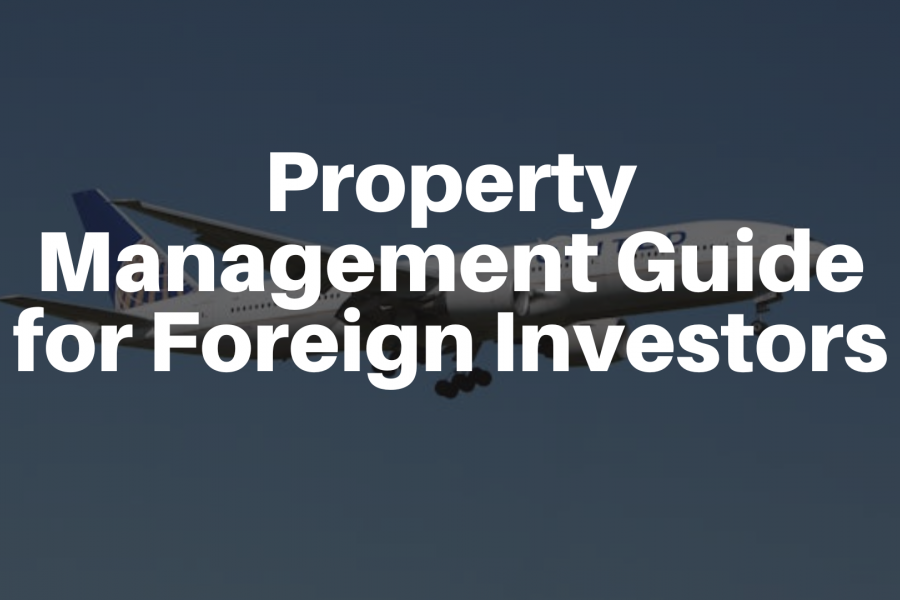Property Management Guide for Foreign Investors

- Why Foreign Investors Choose U.S. Real Estate
- Common Challenges Foreign Investors Face
- Setting Up a Reliable Management Structure
- Legal and Tax Considerations
- Benefits of Hiring a Property Management Company
- Building Local Partnerships
- Keeping Up with Property Performance
- Protecting Your Investment
- Final Thoughts
Key Takeaways
- Investing in rental properties can be an effective way to build wealth.
- Property investments don't always have to be local; international investments are rising in popularity.
- Partnering with a property management team can streamline investment efforts.
Investing in real estate can be a powerful way to build long-term wealth, and many international investors are turning to the U.S. property market for its relative stability and strong returns. However, owning rental properties from outside the country comes with its own set of challenges, like time zone differences, language barriers, tax complexities, and legal obligations.
Foreign investors need to know the essentials of managing U.S. rental properties effectively, focusing on strategies that reduce risks, ensure compliance, and maximize return on investment. Read this full guide by Evolve Real Estate & Property Management to learn more.
Why Foreign Investors Choose U.S. Real Estate
The U.S. continues to be a preferred market for international buyers due to its economic stability, legal protections for property owners, and the potential for consistent rental income. Cities with strong job markets and growing populations, such as Austin, Atlanta, Orlando, and Phoenix, are particularly attractive.
In addition, the ability to invest in different types of properties, including residential homes, multifamily units, and vacation rentals, allows foreign investors to build diversified portfolios. However, the same factors that make the U.S. market appealing also require careful oversight, especially if the investor is managing the property from thousands of miles away.
Common Challenges Foreign Investors Face
Managing property remotely poses several challenges. Time differences can make communication difficult, especially if urgent maintenance or legal issues arise. Language barriers can add confusion when dealing with local vendors, tenants, or legal processes.

Another major hurdle is understanding local laws. Real estate regulations in the U.S. vary significantly by state and city. For example, rent control laws, security deposit rules, and eviction procedures are all handled at the state or municipal level. Without a clear understanding of these rules, investors risk fines or legal disputes.
Taxation is also a key consideration. Foreign investors may be subject to the Foreign Investment in Real Property Tax Act (FIRPTA), as well as federal, state, and possibly local taxes. Keeping track of these obligations, and filing the correct forms on time during tax season, requires knowledge of U.S. tax codes.
Setting Up a Reliable Management Structure
To overcome these challenges, it’s important to put systems in place before acquiring or leasing out a property.
First, foreign investors should establish a U.S. bank account. This streamlines rent collection and helps with paying vendors, taxes, and mortgage payments. A tax identification number (TIN) is also required to comply with U.S. tax laws. Investors should consult with a certified tax professional to determine the optimal ownership structure, whether it's under their personal name, a U.S.-based LLC, or another legal entity.
Choosing the right property is just as important. Select locations with high rental demand, low vacancy rates, and property types that are easy to maintain. Consider working with a local real estate agent who understands the needs of international investors and can recommend suitable properties.

Legal and Tax Considerations
Before collecting rent, foreign investors must ensure they are operating within legal parameters. The IRS requires that rental income from U.S. properties be reported, and foreign investors may need to withhold a percentage of rental income under FIRPTA unless they file the correct forms.
There are also visa and residency considerations. Buying property in the U.S. does not automatically grant immigration benefits. If the investor wishes to visit the property regularly, they must apply for the appropriate visa.
Consulting with a tax advisor who specializes in non-resident investors is essential. They can help determine if tax treaties exist between the investor’s home country and the U.S., potentially reducing the tax burden. Setting up an LLC or other entity may also provide benefits in terms of liability protection and tax optimization.
Benefits of Hiring a Property Management Company
Perhaps the most effective way for foreign investors to manage U.S. real estate is by partnering with a professional property management company. These companies handle day-to-day responsibilities, giving investors peace of mind and freeing them from the demands of managing properties across borders.
- A property manager will:
- Screen and place qualified tenants.
- Collect rent and handle lease agreements.
- Coordinate maintenance and repairs.
- Ensure compliance with local landlord-tenant laws.
- Provide monthly financial reports and year-end tax documentation.
- Serve as the local point of contact for tenants.
This partnership is especially valuable when investors cannot be present in person. With a trusted management company, foreign owners can focus on high-level investment decisions while the manager handles operations on the ground.

Building Local Partnerships
Besides hiring a property manager, foreign investors benefit from building a local support network. Partnering with real estate attorneys, CPAs, insurance brokers, and contractors ensures you have reliable professionals who understand the property and your investment goals.
It’s also helpful to work with professionals who have experience supporting non-U.S. clients. These individuals can guide you through legal forms, insurance coverage, and banking systems specific to foreign ownership.
Keeping Up with Property Performance
Even with a property manager in place, foreign investors should stay involved by reviewing monthly reports and scheduling regular strategy calls. Understanding your property's financial performance helps with budgeting, tax preparation, and long-term planning.
Use cloud-based property management software or dashboards provided by your management company to access income statements, maintenance logs, and occupancy reports. Keeping tabs on these details allows you to make data-driven decisions and track your investment's progress over time.
Protecting Your Investment
Remote property ownership comes with some risks, but most can be mitigated through proper planning. Make sure your insurance coverage includes liability protection and natural disaster coverage if applicable in your area. Your property manager can assist with comparing quotes and making sure your coverage is up to date.
Protect your investment by vetting tenants thoroughly. Good tenants are key to protecting the property’s value and ensuring consistent cash flow. A reputable management company will run background checks, verify income, and assess creditworthiness before approving applicants.
Final Thoughts
Managing U.S. property as a foreign investor is entirely possible and often profitable with the right approach. The key is to prepare ahead, build a team you trust, and create systems that support consistent oversight, even from abroad.
Hiring a professional property management company is often the most efficient and secure way to protect your investment. These professionals handle the day-to-day details, allowing you to focus on strategy, compliance, and maximizing returns. If you need professional assistance, work with Evolve Real Estate & Property Management.
